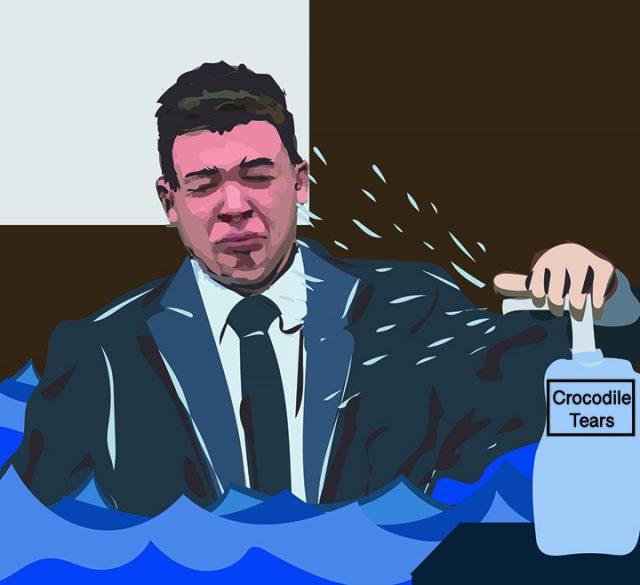LOGAN EVANS
campus editor
 The latest true crime docuseries from Netflix is built up as the story of serial killer Richard Ramirez, and it is — sort of.
The latest true crime docuseries from Netflix is built up as the story of serial killer Richard Ramirez, and it is — sort of.
Yes, his face mopes in shadow on the series’ thumbnail. His presence stalks just behind the narrative, scuttling from crime scene photo to suspect sketch, always felt but not often seen. But his evil is just the backdrop.
Where “Night Stalker: The Hunt For a Serial Killer” really finds its pulse is in the strength of a community that persevered.
Producers Tiller Russell and James Carroll have crafted their series to mimic the investigation it’s covering exactly as it unfolded. There’s no early tease of Ramirez as a mythic figure in true crime canon — his name isn’t even known until the third episode. We don’t explore a tortured childhood, and we never get a motive for his brutality. The idea of pure cosmic evil is raised, but it hardly matters.
“Night Stalker” is not about the making of a killer, but the unmaking of one.
The bulk of the story is delivered through an interview with Detective Gill Carrillo, the man largely responsible for catching Ramirez. His story is compelling — an aimless LosAngeles street kid turned savvy cop with a knack for intuition.
There’s a touching moment in the first episode when another officer recalls his shock that seasoned homicide detective Frank Salerno chose Carrillo to take on the Night Stalker case.
“He was notorious for eating sunflower seeds and spitting the shells out all over the place,” he says. “This guy ends up working for Frank Salerno?”
A lot of the intrigue in Night Stalker comes from watching Carrillo’s work. His methods are simple, but he delivers again and again — many times, just a hair’s length from success.
The choice to frame the series as a mystery also pushes the focus onto Ramirez’s victims, and rightly so. Several survivors give chilling firsthand interviews. We get a strong sense of the brutality of the crimes, their indiscriminate nature and the grip they held the LA community under from 1984–1985.
Despite some overly sensational b-roll shots of bloody knives and darkened windows, there’s enough respect paid to the victims and their families to convey the weight of what they went through.
One of the most crushing interviews comes from a woman who recalls begging her grandmother to begin locking her doors at night. The grandmother refused, not wanting to live in fear, only to be killed by Ramirez weeks later.
Night Stalker covers a lot of material in just four episodes, and at times it can feel a little bit quick. A few of the crimes detailed can blur into others. This might be inevitable, covering a spree as grim and lengthy as Ramirez had, but an additional episode or two might have helped the viewer settle into the pacing.
Some dedicated fans of true crime might be disappointed with Night Stalker’s lack of analysis on the mind of Ramirez, but the series works fine without it. It’s an empathetic look at the pain he caused and the people who brought him to justice.


































